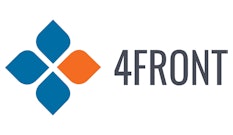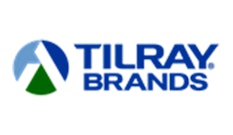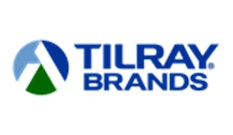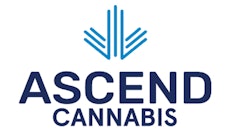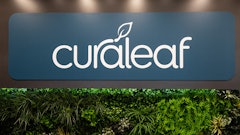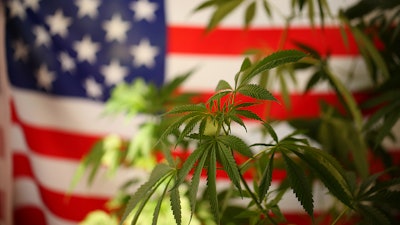
A revised version of the SAFE Banking Act was revealed Sept. 19, more than a week ahead of a scheduled markup on the legislation in the Senate Banking Committee.
The amended bill includes a new title, the Secure and Fair Enforcement Regulation (SAFER) Banking Act of 2023 (S. 2860)—with the addition of the word “regulation”—as first reported by Politico. And it is now eight pages longer than the original 38-page bill introduced by a group of bipartisan House and Senate lawmakers in April.
Predominantly, the nuts and bolts remain intact: to provide safe harbor for banks, credit unions, other financial institutions and payment processors that provide services to state-licensed cannabis businesses, allowing them to operate in the financial mainstream despite the conflict between federal and state laws pertaining to cannabis as a controlled substance.
But the eight additional pages of text from the original version of the bill are almost entirely related to the much-debated Section 10 of the legislation, which largely addresses requirements for federal banking agencies to oversee financial institutions so that their services are only provided to good actors, whether that be in the cannabis industry or elsewhere.
Specifically, federal banking regulators are tasked with ensuring financial institutions “have processes and procedures in place to identify fraudulent or illegal activity, whether activity occurs at a depository institution or through vendors or customers with which a depository institution has a relationship,” according to the revised bill’s language.
And despite varying degrees of customer risks within certain industries, the revised bill states that financial institutions should perform their due diligence on individual customer relationships “rather than decline to provide banking services to categories of customers” in high-risk industries altogether.
Notably, Section 10 was added to a previous version of the SAFE Banking Act in 2019 to help gain support from Republicans, who expressed concerns over how the legislation would potentially allow federal regulators to unjustly pressure financial institutions to break ties with customers from other industries, such as payday lenders, firearms dealers, and other companies believed to be at a high risk for fraud and money laundering.
These concerns stemmed from an Obama administration initiative called Operation Choke Point, when the U.S. Department of Justice in 2013 began investigating banks that did business with these “high-risk” customers in what many political opponents viewed as an effort to freeze them out of the financial system. The initiative further deepened a political divide over the government taking aim at legal industries and was discontinued in 2017.
In 2019, adding Section 10 (then Section 13) to the SAFE Banking Act helped ease the minds of many Republicans by including language that would prohibit federal regulators from forcing account closures unless a law was broken. As a result, the legislation overwhelmingly passed in the U.S. House via a bipartisan 321-103 vote that year. SAFE Banking passed six other times in the House the past two congresses but has never made headway in the Senate.
Fast-forward to 2023, and now Section 10 is the culprit for a delayed vote on the SAFE Banking Act in the Senate Banking Committee, which welcomed six witnesses to testify on the legislation in May. At this hearing, majority member Sen. Jack Reed, D-R.I., took issue with Section 10, claiming it’s too broad beyond the scope of the cannabis industry and would make it more difficult for federal regulators to raise the alarm about bad actors without “tipping them off.”
“Section 10 will require a bank to provide a notice to a customer when the federal government suspects they may be engaging in illegal activity,” Reed said. “Well, that’s like warning people to get out of town and take the money and run.”
These comments represent the crux of the delayed vote in the committee, which is now scheduled to hold a markup on the revised legislation at 9:30 a.m. Sept. 27.
RELATED: SAFE Banking Act on Cusp of Markup, Advancement in Senate Banking Committee
Setting out certain conditions for termination of banking services, the SAFER Banking Act states that “reputational risk” is not a valid reason for federal regulators to request or require a financial institution to cut off a specific account or group of accounts, regardless of if the account is related to a state-licensed cannabis company or other industries.
But the legislation does include anti-money laundering, counterterrorism and national security-related provisions. It also includes language to promote greater access to financial services for disadvantaged communities and business start-ups.
In a new subsection to Section 10 titled “Increasing Access to Deposit Accounts for Businesses and Consumers,” the legislation now would require regulators and banks to work with the U.S. secretaries of commerce and treasury (within two years of enactment) to ensure depository institutions serve rural areas and low- and moderate-income communities, as well as tribal communities. This subsection was not specific to cannabis businesses only.
Also incorporated in the revised bill, the Federal Deposit Insurance Corporation would be required to conduct a biennial survey on the efforts to provide greater access to deposit accounts for small and medium-sized businesses and on any barriers these businesses may encounter. Again, this subsection made no specific references to cannabis businesses in particular.
Indicative that Reed’s concerns from May have been addressed in the revised language, Banking Committee Chairman Sen. Sherrod Brown, D-Ohio, calendared a markup on the SAFER Banking Act for Sept. 27.
Made up of 23 members, the Senate Banking Committee needs 12 votes for a majority. Eleven members of the body are already signed on as co-sponsors for the original SAFE Banking legislation, including eight Democrats and three Republicans. Brown is not among the bill’s cosponsors, but recent comments he made to The Hill that “we hope to get people on board and get a strong vote” and his willingness to calendar a markup suggest he’s on board.
While the committee likely has the votes to advance the bill, how much support it receives in markup could have rippling effects toward a possible floor vote in the full Senate chamber. And this support largely lies in the fine details of the new language.















